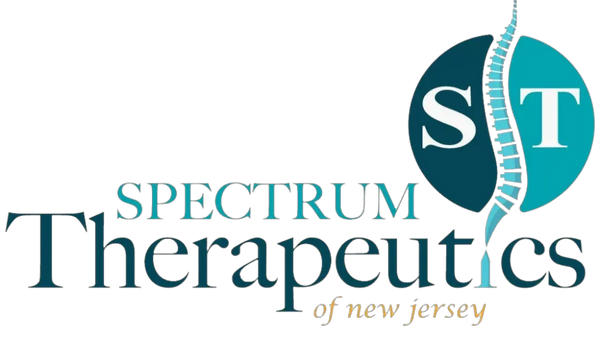
Adhesive Capsulitis Rehab in Wayne, NJ: Expert Physical Therapy for Shoulder Recovery
Dr. Rob Letizia PT, DPTShare
If you can't reach behind your back to tuck in your shirt, struggle to wash your hair, or wake up at night from shoulder pain, you might be dealing with adhesive capsulitis—commonly known as frozen shoulder. This frustrating condition affects up to 5% of adults, with women over 50 being particularly susceptible.
At Spectrum Therapeutics in Wayne, NJ, Dr. Rob Letizia has over 25 years of experience helping patients overcome adhesive capsulitis and regain full shoulder function. While this condition can be incredibly limiting, the right treatment approach can significantly reduce your recovery time and restore your quality of life.
Understanding Adhesive Capsulitis
Adhesive capsulitis occurs when the shoulder capsule—the connective tissue surrounding your shoulder joint—becomes inflamed and then forms adhesions (scar tissue). This process literally "freezes" your shoulder, restricting movement in all directions.
The condition typically progresses through three distinct phases:
Freezing Stage (2-9 months): Gradual onset of pain and stiffness. You begin losing range of motion, and pain often worsens at night, disrupting sleep.
Frozen Stage (4-12 months): Pain may actually decrease, but stiffness reaches its worst point. Daily activities become extremely difficult or impossible.
Thawing Stage (12-42 months): Gradual return of movement, though this can take years without proper intervention.
While adhesive capsulitis can resolve on its own, waiting 2-4 years for natural recovery isn't practical when effective treatment can dramatically reduce this timeline.
Why Adhesive Capsulitis Develops
Several factors increase your risk of developing frozen shoulder:
Age and Gender: Most common in women between 40-65, with peak incidence around age 56.
Diabetes: People with diabetes are 2-4 times more likely to develop adhesive capsulitis, and their symptoms tend to be more severe.
Prolonged Immobilization: After injury, surgery, or illness that keeps your arm still for extended periods.
Autoimmune Conditions: Conditions like thyroid disorders, heart disease, or Parkinson's disease increase risk.
Previous Shoulder Problems: History of rotator cuff tears, impingement, or other shoulder injuries.
Understanding your specific risk factors helps us tailor treatment to your unique situation and prevent recurrence.
Our Specialized Treatment Approach
At Spectrum Therapeutics, we use evidence-based techniques specifically proven effective for adhesive capsulitis:
Manual Therapy Techniques: Gentle joint mobilization and soft tissue work to gradually restore capsular mobility without causing additional inflammation.
Progressive Range of Motion: Carefully graded exercises that respect your current limitations while steadily improving mobility. We progress at your shoulder's pace, not a predetermined schedule.
Pain Management Strategies: Techniques to manage discomfort during recovery, including positioning advice, activity modification, and natural pain relief methods.
Functional Training: As range of motion improves, we focus on restoring your ability to perform daily activities like reaching overhead, behind your back, and across your body.
Home Exercise Program: Simple, effective exercises you can do at home to maintain progress between sessions and accelerate recovery.
Patient Education: Understanding your condition reduces anxiety and helps you make informed decisions about activity levels and treatment expectations.
Advanced Treatment Options
For stubborn cases or when traditional methods need enhancement, we offer:
Shockwave Therapy: High-energy sound waves that can help break down adhesions and stimulate healing in the shoulder capsule.
Dry Needling: Precise needle placement to release trigger points in surrounding muscles that contribute to pain and stiffness.
Postural Correction: Addressing neck and upper back problems that often develop as compensation for limited shoulder movement.
What to Expect During Treatment
Recovery from adhesive capsulitis takes patience, but proper treatment significantly reduces the timeline:
Month 1-2: Initial focus on pain management and gentle mobility work. You may notice improved sleep and slightly easier daily activities.
Month 2-4: Progressive improvement in range of motion. Activities like reaching for objects or getting dressed become less challenging.
Month 4-8: Significant improvement in function. Most patients can return to normal daily activities, though some limitations may remain.
Month 8-12: Near-complete recovery for most patients. Some may have minor residual stiffness but excellent functional improvement.
This timeline is much shorter than the 2-4 years it can take without proper treatment.
Managing Adhesive Capsulitis at Home
Between therapy sessions, several strategies can help your recovery:
Sleep Position: Sleep on your unaffected side with a pillow supporting your painful arm. Avoid sleeping on the frozen shoulder.
Heat Therapy: Warm showers or heating pads before exercises can help relax muscles and improve mobility.
Gentle Movement: Keep your shoulder moving within comfortable limits. Complete immobilization worsens adhesions.
Stress Management: Pain and limitation can be frustrating. Stress management techniques support both mental health and physical recovery.
Why Choose Spectrum Therapeutics for Frozen Shoulder
Dr. Letizia has extensive experience treating adhesive capsulitis and understands the unique challenges this condition presents. Our approach combines:
- Specialized manual therapy techniques specific to frozen shoulder
- Patience and understanding during the frustrating recovery process
- Realistic timelines and expectations based on your specific presentation
- One-on-one treatment sessions focused entirely on your needs
- Comprehensive approach addressing all factors contributing to your condition
We also accept most major insurance plans and offer same-week appointments, understanding that delayed treatment can prolong your recovery.
Don't Wait for Natural Recovery
While adhesive capsulitis can eventually resolve on its own, waiting 2-4 years isn't necessary when effective treatment is available. Early intervention leads to faster recovery, less pain, and better long-term outcomes.
Call Spectrum Therapeutics at (973) 689-7123 to schedule your adhesive capsulitis evaluation. Let us help you regain your shoulder mobility and get back to the activities you enjoy.
Related Shoulder Conditions We Treat:
Shoulder problems often occur together or lead to other issues:
-
Rotator Cuff Injury Therapy - Often precedes or follows frozen shoulder
- Why Start PT Early - Don't wait for frozen shoulder to worsen
- Upper Back Pain Relief - Often develops from altered movement patterns



